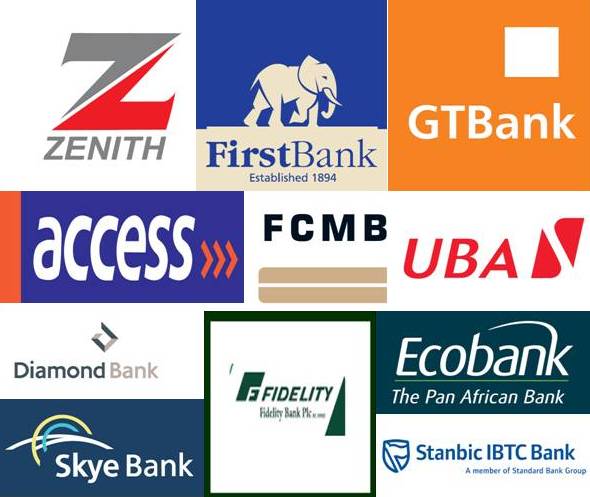Banking recovery lures funds back to Nigeria stocks
Signs of a sharp recovery in bank earnings for the first quarter are drawing investors to Nigerian shares after several years of turbulence in local stock markets following a 2008 banking crisis that wiped 60 percent off their value.
Africa’s second biggest index soared to a seven-and-a-half-month high last week, passing the psychological hurdle of 21,000 points for the first time this year, driven largely by gains in the banking sector.
Banking stocks have started to perk up after a torrid 2011 which saw them fall 30 percent, reversing an an earlier recovery, and underperform the overall index, which lost just 17 percent.
Analysts say they still look inexpensive relative to their earnings and other sectors in the wider stock market, which leaves room for further growth.
“Nigerian banks are the cheapest … trading on 2012 forward P/E multiples of 5.2x,” said Soji Solanke, banking analyst at Renaissance Capital, adding that he expected them to outpace emerging market peers by a third this year.
Lenders in Africa’s top oil exporter are expected to bounce back in the first quarter of 2012, recovering from losses in 2011 that were caused by the writing down of bad loans left over from the 2008/9 banking crisis.
That crisis saw the central bank bail out nine banks to the tune of $4 billion, but recovery since then has been rocky.
Diamond Bank, one of the first lenders to report first quarter earnings, set a positive tone with a three-fold increase in pre-tax profit, while United Bank for Africa (UBA) said its profits rose two-fold.
More first quarter earnings are due in the coming weeks, which if they are as good as they’re expected to be, could provide support for equities, analysts say.
The recovery in banking stocks has driven Nigeria’s overall share index up 6.6 percent on the year so far.
Jamie Allsopp, fund manager at Africa and Middle East fund Insparo Asset Management thinks strong bank earnings could lift the banking sector by 35-45 percent by year end.
He also thinks banking stocks are cheap relative to emerging market peers. Insparo increased the weight of Nigerian stocks in its African portfolio to 40 percent in the first quarter, from 30 percent in 2011.
POISED FOR A RALLY?
Nigerian banks are trading at 0.7 times 2012 book value, while emerging peers are valued at 1.5 times, according to FBN Capital research, creating a buying opportunity.
“Impressive Q1 2012 earnings figures have prompted some value investors – local asset managers and foreign investors – to hunt for bargain stocks,” said Sulemana Mohammed, financial sector specialist at Ecobank Transnational Incorporated.
“They realised that this may be the opportune time to take positions in the Nigerian banking sector ahead of the recovery.”
Chief executive of state-owned “bad bank” AMCON, Mustapha Chike-Obi, told a Reuters Africa Investment Summit last month that banking earnings would recover in the first quarter of 2011, saying the numbers were “very robust.”
Analysts have tipped blue chip lenders like First Bank , Guaranty Trust Bank, Zenith Bank and UBA, to outperform the sector this year.
So far, the recovery has attracted foreign funds more than domestic ones, which remain largely locked into mostly three-year bonds paying attractive 16 percent yields.
That could soon change if domestic buyers – still wary of stocks after getting their fingers burned last year – get a sense the recovery is sustainable.
Stocks are also likely to get a boost as domestic pension funds’ investment limits are lifted, allowing fund managers to invest half their portfolios in equities this year.
Like Allsopp and FBN Capital, analysts at Vetiva anticipate a rally for the index and have upped their 2012 forecast.
“We maintain our view on 2012 stock index trajectory of a year-end target of 23,200 points … this return will be largely driven by the banking sector, which we believe will outperform other sectors,” Abiola Rasaq, banking analyst at Vetiva Capital.
The index opened for trading on January 3, at 20,672 points.





